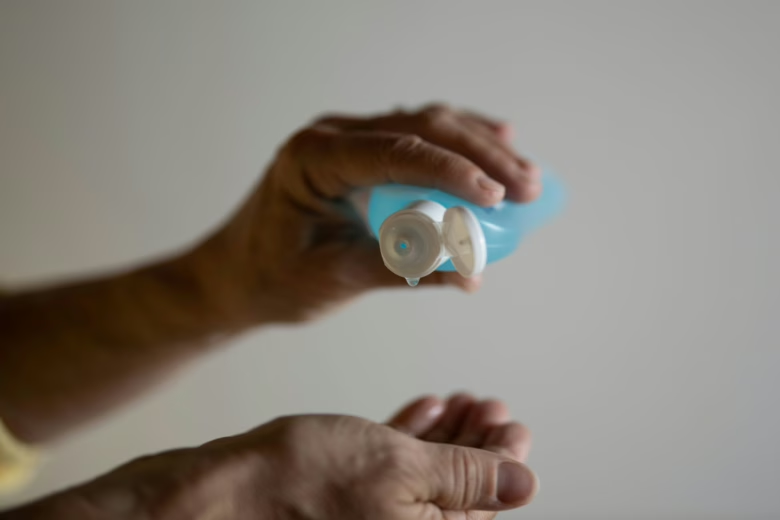Achieving healthy, glowing skin isn’t just about using high-quality skincare products—it’s also about using them correctly. While individual ingredients may offer great benefits, some combinations can be harmful, leading to irritation, redness, breakouts, or even long-term skin damage. Understanding which ingredients should never be mixed can help you create an effective, safe skincare routine. Here are ten skincare ingredient combinations that can damage your skin and why you should avoid them.
1. Retinol + Vitamin C
Both retinol and vitamin C are powerhouse skincare ingredients, but together, they can do more harm than good. Vitamin C is highly acidic and works best in a lower pH environment, whereas retinol requires a more neutral pH to be effective. Using them together can cause irritation, and excessive dryness, and reduce their overall efficacy.
Alternative: Use vitamin C in the morning for its antioxidant protection and retinol at night for its anti-aging benefits.
2. Retinol + AHAs/BHAs (Glycolic Acid, Salicylic Acid, Lactic Acid)
Retinol and exfoliating acids like glycolic acid, lactic acid, and salicylic acid all work to renew skin cells, but combining them can be a recipe for extreme dryness, irritation, and peeling. Over-exfoliation weakens the skin barrier, making it prone to sensitivity and damage.
Alternative: Alternate their use—exfoliating acids on some nights and retinol on others. Always use a hydrating moisturizer and SPF to protect your skin.
3. Benzoyl Peroxide + Retinol

Benzoyl peroxide is commonly used to fight acne, while retinol helps with skin renewal and anti-aging. However, benzoyl peroxide is an oxidizing agent that can deactivate retinol, making both ingredients less effective. This combination can also lead to severe irritation, dryness, and flakiness.
Alternative: Use benzoyl peroxide in the morning (with sunscreen) and retinol at night to get the benefits of both without unnecessary irritation.
4. Vitamin C + AHAs/BHAs
Vitamin C is an antioxidant that brightens the skin, but when combined with alpha-hydroxy acids (AHAs) and beta-hydroxy acids (BHAs), it can cause excessive exfoliation and skin sensitivity. The low pH of acids can destabilize vitamin C, reducing its effectiveness and increasing the risk of irritation.
Alternative: Use vitamin C in the morning and AHAs/BHAs in your evening routine to maintain balance in your skincare regimen.
5. Niacinamide + Vitamin C
There has been debate over whether niacinamide and vitamin C should be used together. While modern formulations may allow for compatibility, older research suggests that they can neutralize each other, reducing their effectiveness. Additionally, some people experience skin flushing when these ingredients are mixed.
Alternative: Apply vitamin C in the morning and niacinamide at night for maximum benefits without potential irritation.
6. Hyaluronic Acid + Harsh Exfoliants
Hyaluronic acid is a hydrating powerhouse, but when used with potent exfoliating acids, it may not work as effectively. If applied after an aggressive exfoliant, it can pull moisture away from deeper layers of the skin, leaving it dehydrated instead of plump and hydrated.
Alternative: Use a gentler formulation of hyaluronic acid and apply it on damp skin to help lock in moisture after cleansing.
7. Sunscreen + Makeup with SPF
While layering SPF-infused makeup over sunscreen seems like extra protection, certain formulations can interfere with the effectiveness of your sunscreen. Some ingredients in foundation and powders can dilute sunscreen, making it less effective in blocking UV rays.
Alternative: Always apply a standalone broad-spectrum SPF 30+ sunscreen before any makeup, and reapply throughout the day if needed.
8. Oil-Based and Water-Based Products
Mixing oil-based and water-based products can lead to poor absorption. Oil repels water, meaning if you apply a water-based serum first and then follow with an oil, the serum may not penetrate effectively. This can cause product buildup and reduce overall benefits.
Alternative: Apply water-based products first (like serums) and follow up with oils or occlusive moisturizers to seal in hydration.
9. Copper Peptides + Vitamin C
Copper peptides help with collagen production and skin healing, while vitamin C brightens and protects against free radicals. However, when used together, vitamin C can oxidize copper peptides, making them ineffective and potentially irritating.
Alternative: Use copper peptides in the evening and vitamin C in the morning to avoid any potential deactivation.
10. SPF + Chemical Exfoliants
Using chemical exfoliants like AHAs/BHAs and then applying sunscreen immediately after can sometimes reduce the effectiveness of the sunscreen. Exfoliation makes the skin more sensitive to UV rays, and some sunscreen formulas may not adhere well to freshly exfoliated skin.
Alternative: Always use a hydrating layer (like moisturizer) between your exfoliant and sunscreen, and never skip SPF when using exfoliating acids.
Final Thoughts
Understanding how different skincare ingredients interact is essential to maintaining a healthy, glowing complexion. While some combinations can work well together, others can cause irritation, dryness, or reduced effectiveness. By carefully layering your skincare products and alternating powerful activities, you can maximize their benefits without harming your skin.
If you’re unsure about a combination, it’s always best to consult a dermatologist or perform a patch test before applying new products to your routine.

